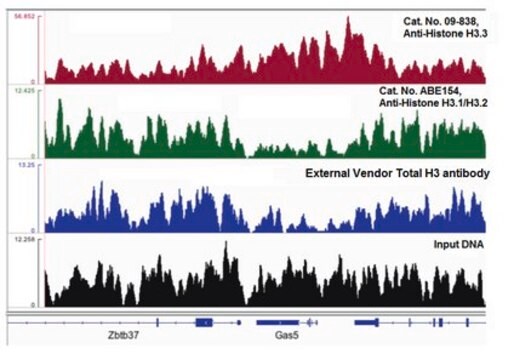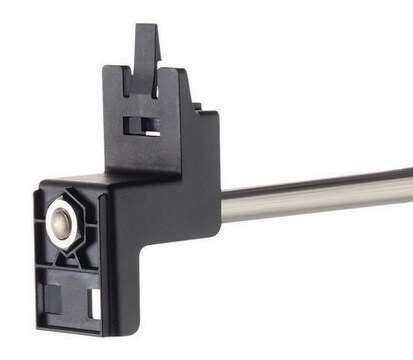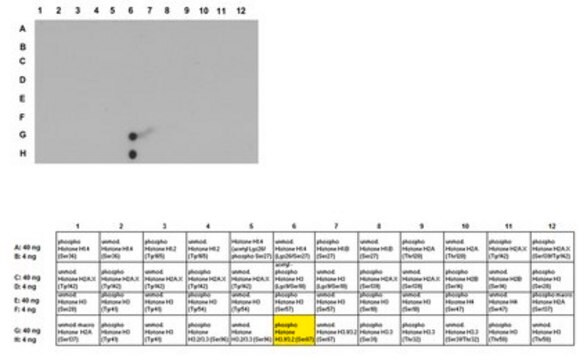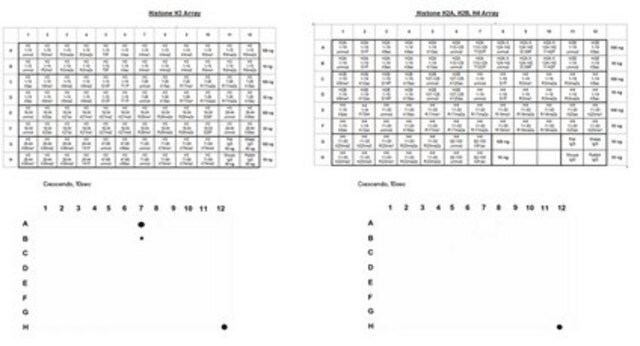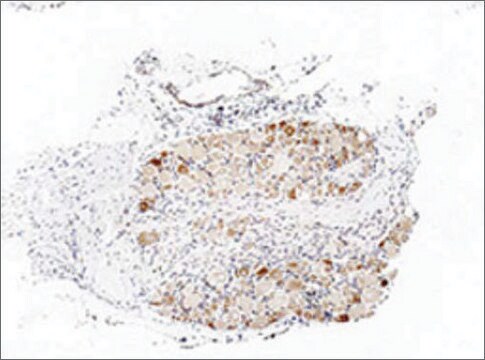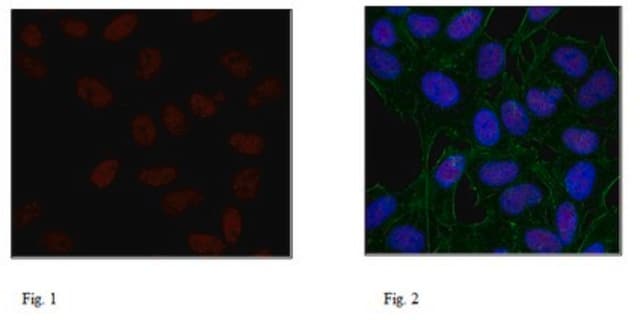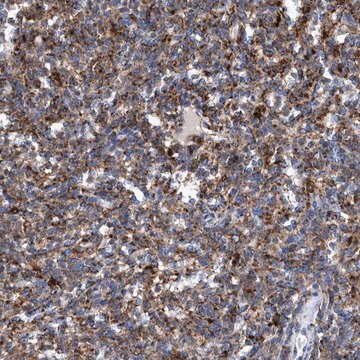ABE375
Anti-acetyl-phospho Histone H1.4/H3 (Lys26/Lys9, Ser27/Ser10) Antibody
from rabbit, purified by affinity chromatography
Synonym(s):
Histone H3.1, Histone H3/a, Histone H3/b, Histone H3/c, Histone H3/d, Histone H3/f, Histone H3/h, Histone H3/I, Histone H3/j, Histone H3/k, Histone H3/l
About This Item
Recommended Products
biological source
rabbit
Quality Level
antibody form
affinity isolated antibody
antibody product type
primary antibodies
clone
polyclonal
purified by
affinity chromatography
species reactivity
human, mouse, rat
technique(s)
dot blot: suitable
immunoprecipitation (IP): suitable
western blot: suitable
NCBI accession no.
UniProt accession no.
shipped in
wet ice
target post-translational modification
phosphorylation ((pLys26/pLys9), (pSer27/pSer10))
Gene Information
human ... HIST1H3F(8968)
General description
Specificity
Immunogen
Application
Immunoprecipitation Analysis: 1 µg from a representative lot immunoprecipitated acetyl-phospho Histone H1.4/H3 (Lys26/Lys9, Ser27/Ser10) in 500 µl of colcemid treated HeLa acid extract.
Epigenetics & Nuclear Function
Histones
Quality
Western Blot Analysis: 0.5 µg/mL of this antibody detected acetyl-phospho Histone H3 (Lys9/Ser10) in 10 µg of untreated and sodium butyrate treated HeLa acid extract. Note that acetyl-phospho Histone H1.4 Lys27/Ser27 is not present in acid extracts and thus not detected in this blot.
Target description
Physical form
Storage and Stability
Analysis Note
Untreated and sodium butyrate treated HeLa acid extract, and recombinant Histone H3 protein
Other Notes
Disclaimer
Not finding the right product?
Try our Product Selector Tool.
Storage Class
12 - Non Combustible Liquids
wgk_germany
WGK 1
flash_point_f
Not applicable
flash_point_c
Not applicable
Certificates of Analysis (COA)
Search for Certificates of Analysis (COA) by entering the products Lot/Batch Number. Lot and Batch Numbers can be found on a product’s label following the words ‘Lot’ or ‘Batch’.
Already Own This Product?
Find documentation for the products that you have recently purchased in the Document Library.
Our team of scientists has experience in all areas of research including Life Science, Material Science, Chemical Synthesis, Chromatography, Analytical and many others.
Contact Technical Service